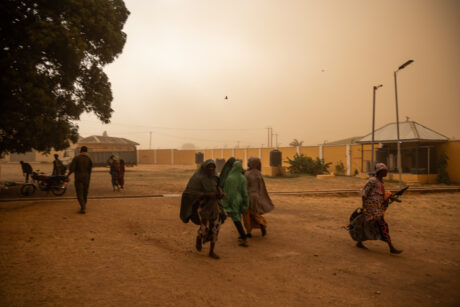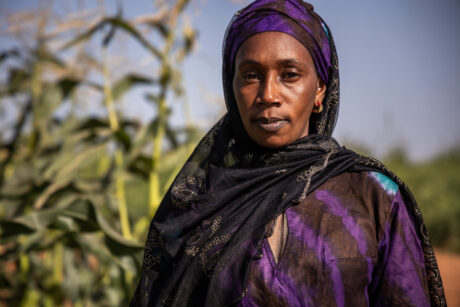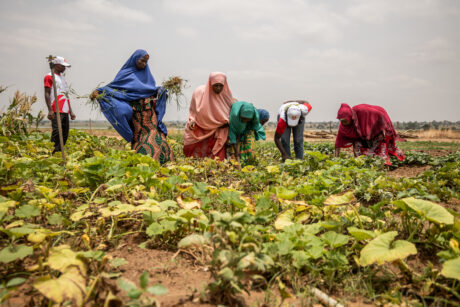Praia, Cabo VerdeThe global travel and tourism industry has faced unprecedented challenges since the beginning of the pandemic in early 2020. The closure of borders and lockdowns in almost every country put a stop to the movement of people and goods. With entire sectors being shut down—both locally and internationally—travel agencies, tour operators, airlines, hotels, resorts, restaurants, shops and even airports have risked going out of business.
In a service-oriented small economy like Cabo Verde, the impact has been especially severe. Since March 2020, Cabo Verde experienced an estimated 94 percent decrease in tourist arrivals, according to the country’s airport authority. With this sudden decline, 90 percent of hotels closed, causing major layoffs of their respective workforces, and the tourism industry shut down almost completely. Given that tourism represents over 25 percent of Cabo Verde’s GDP and is a major job source for women and youth, such sudden declines can adversely affect the country’s entire economy.
While we do not know the full extent of COVID-19’s impact on the country in 2020, the Central Bank and the Cabo Verde government expected it to shrink 8.1 percent and for the unemployment rate to surpass 20 percent.
Despite these setbacks, Cabo Verde has fared better than many countries in the region. The government’s social and economic safety nets sustained private consumption and are continuing to support businesses during the pandemic. Cabo Verde’s strong social, environmental and economic pillars, coupled with its advantageous geographic location in the middle of four continents, put Cabo Verde in a good position to recovery as travel and tourism resume. According to the International Monetary Fund, Cabo Verde’s real GDP growth is projected to rebound to 5.8 percent in 2021 and to average around 6 percent in the medium term.
Most economists believe that small, open and service-based economies will be the first to profit from the post-pandemic recovery. With vaccinations increasing worldwide, Cabo Verde is seeing the light at the end of the tunnel and tourism operators are starting preparations for reopening.
Yet, for sustained recovery from the pandemic, private sector investment is key. Recognizing this, the USAID-funded West Africa Trade & Investment Hub (Trade Hub), which aims to help generate $400 million in new private investment in the region, launched a COVID-19 rapid response program to spur economic recovery through private sector investments.
Since the start of the pandemic, Cabo Verde’s social security system covered an important part of the layoff burden. Banks provided a moratorium on bank loans, while new lines of credit, backed by sovereign guarantees, were put in place for companies. However, low demand and maintenance costs during inactivity drained companies’ liquidity and weakened their balance sheets and capital position. Their ability to resume activity and take advantage of the economic recovery depends highly on their recapitalization.
The Trade Hub believes that venture capital funds targeting small and medium enterprises (SMEs) are the best solutions to reinforce equity capital, remove risk from companies and prepare them for financial restructuring to then provide a solid, long-term capital structure.
As a predominantly service-based economy, Cabo Verde provides a huge opportunity for venture capital finance. Two West African impact venture capital firms, for example, are presently in discussions to launch a COVID-19 rapid response impact fund with the support of the Trade Hub and other partners. With a target portfolio of $10 million, this fund will provide working capital and long-term loans to SMEs up to $500,000.
Recently, two fund managers representing the venture capital firms visited Cabo Verde and met with local authorities, companies and start-ups to move forward with the design of the fund platform. During the visit, the fund managers sought to understand Cabo Verde’s current business environment, opportunities and prospects and to assess compliance to applicable laws and regulations. From the visit, it was clear that venture capital finance and the Trade Hub’s COVID-19 rapid response program could not only be instrumental in building resiliency in the tourism sector but other sectors as well.
The fund managers identified several strategies for sectors outside of tourism that have strong growth potential:
- Expand the fishing industry by supporting fishermen and fish processing while integrating sustainable practices
- Develop industries that have the potential for exports, such as pharmaceutical and light manufacturing, for domestic, regional and U.S. markets
- Diversify product offerings within the hospitality business
- Partner with the banking sector via a combination of debt and equity financing
The Trade Hub’s COVID-19 rapid response program, paired with future impact funds from venture capital firms, provide favorable momentum for the economic and social recovery of Cabo Verde. Interested companies and financial institutions can see all the opportunities available from the Trade Hub on its Co-Investment webpage.
Frantz Tavares is the Public-Private Partnerships Consultant for the USAID West Africa Trade & Investment Hub in Cabo Verde. The Trade Hub aims to catalyze $400 million in new private investment, create 60,000 jobs and generate $300 million in exports across the West Africa region in partnership with the private sector.
The contents of this blog are the sole responsibility of Creative Associates International and do not necessarily reflect the views of USAID or the U.S. Government.



